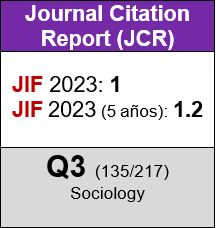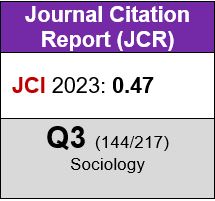"Genealogía afirmativa" del hecho religioso en perspectiva sociológica
DOI:
https://doi.org/10.5477/cis/reis.151.3Palabras clave:
Religiosidad, Ritos, Secularización, Simbolismo, Sistema clasificatorio, Teoría sociológicaResumen
Pensamos que el hecho religioso se basa en el uso de conceptos binarios sagrado/profano, trascendente/inmanente, religioso/secular y religioso/postsecular) que signifi can lo mismo. Esto es un error. Este trabajo realiza una «genealogía afi rmativa» del signifi cado diferenciado y de la génesis social de tales conceptos. El par sagrado/profano representa categorías epistemológico-cognitivas, comunes a toda experiencia religiosa, tanto en el tiempo como en el espacio, que separan diferentes dominios del mundo. El par «trascendente/inmanente» representa categorías históricas forjad as en torno al siglo V a. C., dentro del surgimiento de la Edad Axial. El par religioso/secular representa asimismo categorías históricas, pero esta vez nacidas dentro del cristianismo europeo occidental. El par religioso/postsecular representa categorías sociológicas nacidas dentro de un mundo ya «postsecular», aunque no posreligioso
Descargas
Descargas
Publicado
Cómo citar
Número
Sección
Licencia
Derechos de autor 2024 Revista Española de Investigaciones Sociológicas

Esta obra está bajo una licencia internacional Creative Commons Atribución-CompartirIgual 4.0.
Permite Compartir — copiar y redistribuir el material en cualquier medio o formato, Adaptar — remezclar, transformar y construir a partir del material para cualquier propósito, incluso comercialmente.








